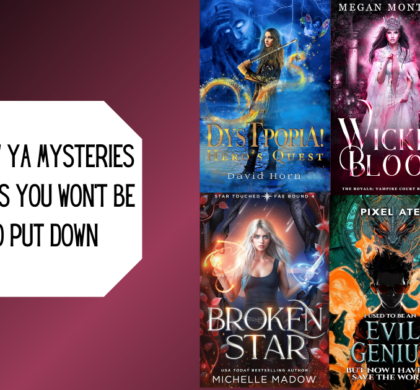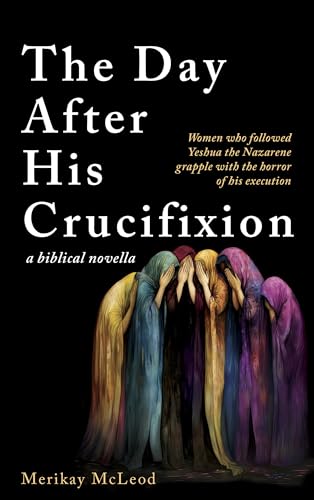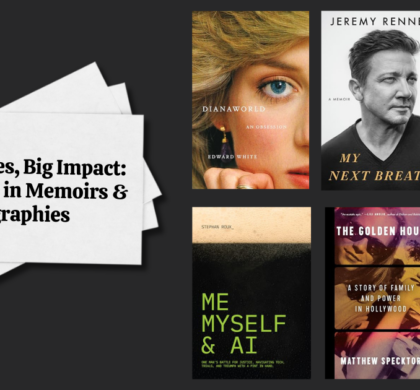Interview with Merikay McLeod, Author of The Day After His Crucifixion
23 Apr 2025
What’s the story behind the story? What inspired you to write The Day After His Crucifixion?
Two concepts inspired this book: The way Jesus treated women and the courage and dedication of the women themselves. The idea for this collection of women’s stories began when I was in college. During undergraduate and graduate years, I studied sociology, women’s studies (now called gender studies) and spirituality. Learning how our social setting affects us, forms us, limits or liberates us fascinated me. And considering how our spiritual experiences can shrivel or expand our lives sent me to research certain gospel passages. Thinking about the women in Bible times, how restricted their lives were, how their culture taught them they were inferior, I was intrigued by those who met Jesus and followed his teachings. If they could tell us what he was like, what would they say? What would they remember about him and his treatment of them?
Jesus, known originally as Yeshua, was a first-century Palestinian Jew. At that time and in that place, women’s lives were greatly restricted. Their value was measured in the number of sons they birthed and the kind of household they ran. While the culture emphasized the importance of studying scripture, women were not allowed to study sacred texts. Often, they were denied even learning to read. There were all sorts of cultural and religious taboos concerning the interaction between men and women. For example, men could divorce their wives, but women could not divorce their husbands. And men were specifically prohibited from speaking to women in public. Yet, here was Yeshua the Nazarene, something like a rock star with huge crowds following wherever he went, ignoring the taboos. He freely interacted with women, taught them, shared meals with them, and welcomed them as his followers. In fact, a woman was the first to whom he told that he was the Messiah. And a woman was the first to see him after his resurrection. At that resurrection meeting, he commissioned her to tell the rest of his followers that he had risen. It is through her voice that the world has learned of that momentous event.
Considering that patriarchal society, it is shocking that within the gospels there is no preaching on the status of women, yet there are several stories of Jesus’ public encounters with women. In these encounters, he treats them with dignity, respect, and compassion. He relates to them as equal human beings rather than sexual objects. He is interested in them as persons. How must that have felt to the women who were used to being seen and treated as inferiors? As the years passed, my pondering the lives of Yeshua and his female followers made me want to write about the experiences they shared together. So I began.
I decided to introduce Jesus through the eyes of the women who encountered him. There would be no religious jargon in my book. I wouldn’t even use the name “Jesus” but rather his birth name, the name by which everyone in his life knew him – Yeshua. Yeshua the Nazarene. My book would not be a theological or a religious study. It would be a collection of stories. Women’s stories. And where to start? Well, nothing draws friends and colleagues together to talk and remember, to laugh and cry, like the death of someone they love. So I started with Yeshua’s crucifixion, and let the women take it from there.
What’s your favorite genre to read? Is it the same as your favorite genre to write?
I usually read nonfiction. And I usually write nonfiction. The Day After His Crucifixion is my first significant attempt at fiction.
What books are on your TBR pile right now?
The Bible. James (a novel by Percival Everett). The Light Eaters by Zoe Schlanger (nonfiction).
What scene in your book was your favorite to write?
There are so many stories here of women whose actions in the face of social disapproval or even danger brought them new, abundant life …. That’s an important theme. But I think my favorite story is the one about the Cana Wedding Feast. I loved researching the foods that were served at that kind of feast, and learning about the shame that would follow families for generations if the feast went bad for some reason. This was not a 4- or 5-course dinner. This was a feast of epic proportions that went on for days. It was fun researching that story, and pointing out the playful enthusiasm of Yeshua as he saved the family’s reputation.
Do you have any quirky writing habits? (lucky mugs, cats on laps, etc.)
I write every day. When I was younger, I could write for hours on end. Today, however, I seem to write in spurts. The words flow and then stop, and I have to take a little break. I walk around the neighborhood. Or I watch a house-remodel show on HGTV. And then the words begin to flow again, and I’m back at my desk.
Do you have a motto, quote, or philosophy you live by?
Here are two of my favorite quotes, both from former First Lady Eleanor Roosevelt: “No one can make you feel inferior without your consent.” “The purpose of life, after all, is to live it, to taste experience to the utmost, to reach out eagerly and without fear for newer and richer experience.”
If you could choose one thing for readers to remember after reading your book, what would it be?
That Yeshua loved people. He didn’t load them down with rules and regulations and fear, but rather set them free to share love and compassion with one another. To be loving, sharing human beings. Each of these women’s lives was enlarged, enriched, and renewed by their interaction with the famous Yeshua.
Sign up for our email and we’ll send you the best new books in your favorite genres weekly.
Related
zaida
Recommended Posts

Twisty New YA Books You Won’t Be Able to Put Down
02 May 2025 - Books to Read if You Like..., News, Young Adult


